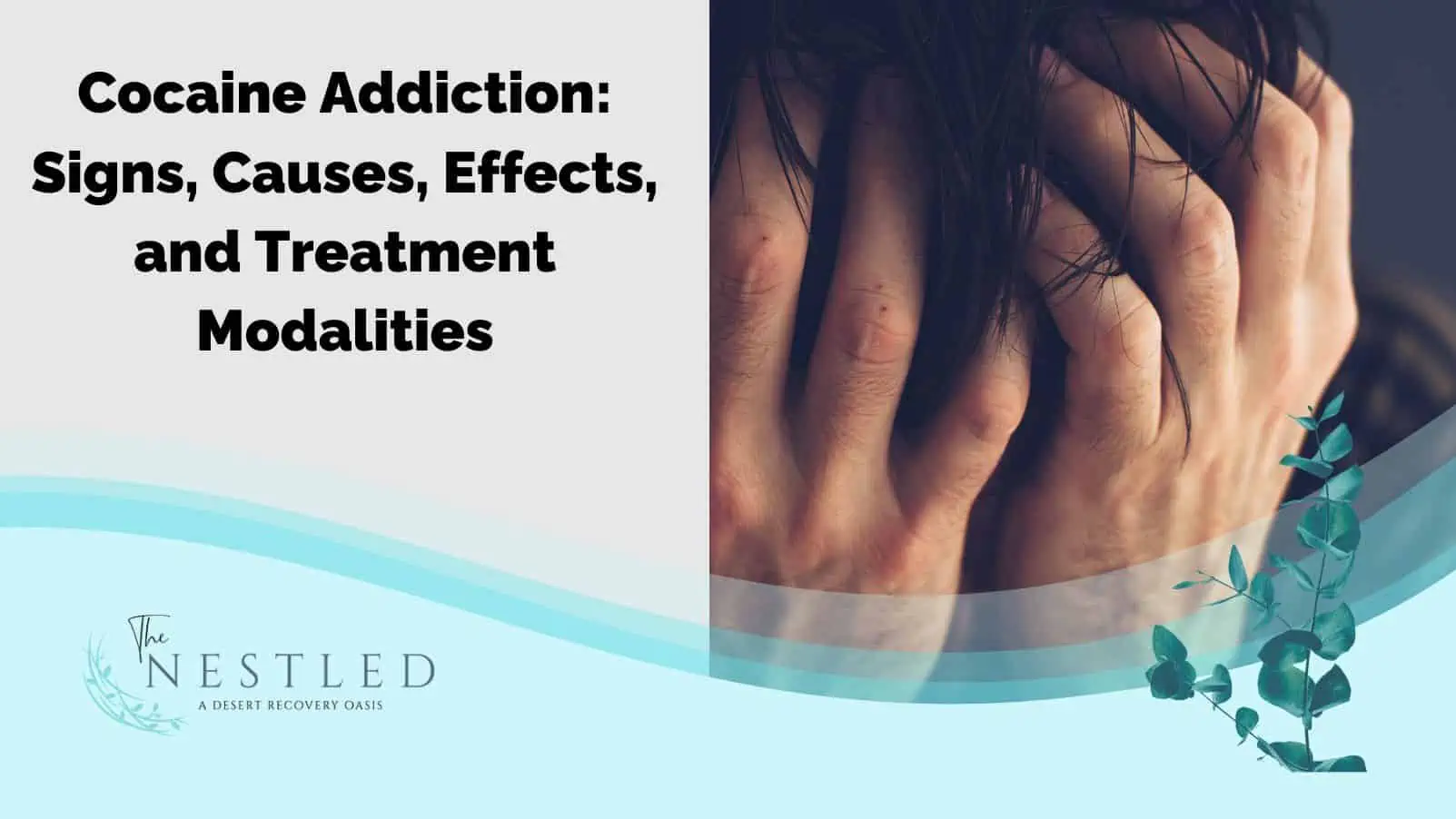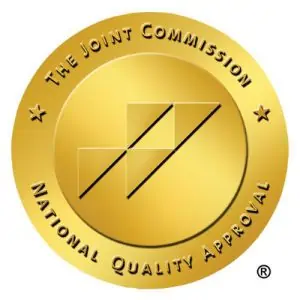Cocaine addiction is the continuous use of cocaine without control, despite the negative effects it has on the user. Cocaine addiction is a serious problem because it strongly affects the brain’s reward system. It’s a complicated and deeply ingrained habit of substance abuse that causes many problems.
The signs of cocaine addiction include behavioral, emotional, and physical symptoms like mood swings, paranoia, agitation, and physical health risks. Timely intervention is essential for a successful recovery.
Cocaine addiction has effects on the user’s physical and mental health, such as heart attacks, lung damage, strokes, seizures, and cognitive impairments. Its social effects include strained relationships, legal issues, and financial strain.
Cocaine addiction is caused by a combination of genetic, environmental, and psychological factors. Some people are more susceptible due to their genetic makeup, while others get lured by exposure to the drug. It can also be caused by trauma or underlying mental health issues.
Treatment for cocaine addiction involves a combination of behavioral therapies, the potential use of medications, and the support of groups, with a focus on relapse prevention through trigger identification, development of coping skills, and building a supportive recovery network.
Symptoms Of Cocaine Addiction
Recognizing cocaine addiction involves identifying various physical, emotional, and behavioral symptoms associated with cocaine use. Long-term use of cocaine can lead to a host of alarming symptoms. The following are the symptoms of cocaine addiction;
Physical Symptoms of cocaine addiction
The physical symptoms associated with cocaine addiction vary widely, but some are particularly common.
- Decreased appetite
- Weight loss
- Restlessness
- Mood swings
- Irritability
- Agitation
- Paranoia
- Engage in high-risk behaviors.
These physical signs, coupled with other behavioral and emotional symptoms, provide a comprehensive picture of the extent of cocaine addiction, including cocaine withdrawal symptoms.
Emotional and Behavioral Symptoms
While physical symptoms are a clear indicator of cocaine use, the emotional and behavioral symptoms often provide more insight into the severity of the addiction. Cocaine triggers a roller coaster of emotional highs and lows, leading to:
- An initial brief state of euphoria and overconfidence
- Mood swings
- Irritability
- Agitation
- Paranoia
In severe cases, individuals exhibit unprovoked aggression, engage in high-risk behaviors, and show persistent signs of depression and anxiety. These symptoms often vary in intensity depending on the individual and the amount of cocaine used. It is important to seek help and support if you or someone you know is struggling with cocaine addiction.
What Is Cocaine Addiction?
Cocaine addiction is characterized by a compulsive desire to use cocaine despite understanding its negative consequences. It typically develops quickly, often within a month, leading to tolerance and physical dependence on the drug.
Cocaine addiction is a complex disorder that is caused by:
- Biological factors
- Psychological factors
- Environmental factors
- Genetic factors
Chronic cocaine addiction results in long-term emotional disturbances, including mood swings, persistent psychosis, depression, and anxiety. It’s more than a mere dependence on cocaine; it’s a life-altering condition that can severely impact an individual’s health, relationships, and overall quality of life.
According to 2020 Centres for Disease Control and Prevention research, more than one in five fatal drug overdoses in the United States involved cocaine in 2018. This number puts the deaths caused by cocaine addiction at 14,666 in 2018.
According to William and Li-Tzy 2017’s ‘Trends and correlates of cocaine use and cocaine use disorder in the United States’, there has been an increase in cocaine use in non-institutionalized individuals age 12 and older from 2011 to 2015. This increase in cocaine addiction poses a risk of an increase in deaths caused by drug overdose.
Why Is Cocaine Addictive?
Cocaine is addictive because of its pleasurable effects and the rapid development of tolerance. Cocaine produces immediate psychological effects, including euphoria, excitement, and alertness, which stimulate the brain’s pleasure centers.
These pleasurable experiences, however, are short-lived, typically lasting only 5 to 30 minutes after snorting. This brief period of intense high often leads to immediate additional use to regain the euphoric feeling.
The physical and psychological dependence on cocaine arises quickly, with the body and brain craving the drug. Tolerance to cocaine also increases swiftly with regular use, leading to higher amounts of the drug being consumed to achieve the same high. These factors contribute to the development of a substance use disorder, turning casual cocaine use into a debilitating addiction.
What Are The Effects Of Cocaine Addiction
The effects of cocaine addiction range from immediate health complications to long-term physical and mental health problems. The short-term and long-term effects of cocaine use can significantly impact an individual’s lifestyle, relationships, and overall well-being.
Short-Term Effects
The following are some of the short-term effects of cocaine addiction;
- Increased heart rate
- High blood pressure
- Raised body temperature
- Frequent nosebleeds
- Dilated pupils
- Excessive sweating
- Rapid weight loss.
Alongside these physical effects, cocaine addicts also experience heightened psychological effects, such as being overly talkative, excitable, and confident, and showing reduced appetites or need for sleep, along with increased energy due to the stimulation of the central nervous system.
Long-Term Consequences
While the short-term effects of cocaine use can be detrimental, the long-term consequences can be even more severe. The following are some of the long-term effects of cocaine addiction;
- High blood pressure
- Cognitive impairment
- Liver and kidney damage
- Increased risk of stroke or heart attack
- Severe weight loss
- Hallucinations
- Sexual problems, including infertility
In addition to these physical effects, long-term cocaine use can result in psychosocial symptoms, which include drastic mood fluctuations, long periods of mania, heightened anxiety, and decreased interest in activities not associated with cocaine use.
What Are The Symptoms Of Cocaine Addiction?
Symptoms of cocaine addiction are often physical, emotional, and behavioral, and they serve as clear indicators of the severity and progression of the addiction. The following are some of the symptoms of cocaine addiction;
- Intense cravings; people addicted to cocaine often have intense, compulsive need or craving to take the drug.
- Increased tolerance; over time, the addict will require more portions of cocaine to achieve the same effects that smaller doses were given.
- Withdrawal symptoms; cocaine addicts experience fatigue, depression, anxiety, increased appetite, intense cravings, and irritability when they do not get the drug after a period of time.
- Financial problems; cocaine addiction often leads to financial stress on the users. The individual will have to spend a lot of money acquiring the drug.l
- Neglecting responsibilities; cocaine addicts often neglect their work, school, or home responsibilities.
- Social isolation; cocaine addicts are often socially withdrawn and isolated from friends and family.
Other symptoms include;
- Dilated pupils
- Increased heart rate
- Increased blood pressure
- Nosebleeds
- Weight loss
- Insomnia
- Tremors.
What Are The Warning Signs Of Cocaine Addiction
The warning signs of cocaine addiction range from physical symptoms like dilated pupils, a runny or bleeding nose, increased blood pressure and heart rate, high body temperature, excessive perspiration, loss of appetite, and insomnia to emotional and behavioral symptoms like overconfidence, paranoia, and increased aggression.
Other signs include long periods of wakefulness, which can lead to erratic sleep patterns and overall fatigue, and a loss of appetite, potentially leading to weight loss and nutritional deficiencies. These signs may resemble withdrawal symptoms in some cases.
These warning signs are often subtle and easy to overlook, particularly in the early stages of addiction. Still, as the addiction progresses, these signs become more apparent and harder to ignore.
Recognizing these warning signs will provide valuable insights into the severity of the addiction and the need for immediate intervention.
How Does Cocaine Affect The Brain?
Cocaine’s impact on the brain alters fundamental neural circuits that are crucial to survival, resulting in changes in behavior and decision-making. The primary way cocaine produces its psychoactive effects is by acting on the brain’s limbic system.
This psychoactive effect on the brain’s limbic interconnected set of regions regulates pleasure and motivation, contributing to cocaine’s addictive nature. Cocaine addiction results in an excessive buildup of dopamine, which leads to overactivation of receiving cells in the nucleus accumbens. The following are the effects of cocaine on the brain:
- Euphoric high
- Increased energy and alertness
- Increased confidence and sociability
- Decreased appetite
- Increased heart rate and blood pressure
These effects contribute to the addictive nature of cocaine.
Can I Overcome Cocaine Addiction?
Yes, you can overcome cocaine addiction. The journey to overcome cocaine addiction is challenging, but it is not impossible. With the appropriate treatment, support, and personal commitment, overcoming cocaine addiction is within reach. The journey will involve setbacks, but with perseverance and the right help, recovery is achievable.
The success rate of overcoming cocaine addiction with professional help, such as rehab, is significantly higher than quitting unaided. According to a 2009 study by the National Institute for Health and Care Excellence (NICE), only 10-30% of people who try to quit cocaine addiction without support stay clean for six months or more, whereas the success rate with rehab is around 50-60%.
What Are The Signs Of Cocaine Overdose?
Cocaine overdose is a serious and life-threatening condition that requires immediate medical attention. Cocaine overdose can happen to anyone, regardless of their tolerance or how long they’ve been using the drug. The risk of overdose increases with the amount of cocaine used and how frequently it is used.
The following are the signs of cocaine overdose:
- Elevated heart rate
- Rise in body temperature
- Nausea and vomiting
- Chest pain
- Tremors
- Panicked feelings
- Anxiety
- Delirium
- Paranoia
Additionally, a cocaine overdose increases the risk of death from complications such as a heart attack, seizure, or stroke. Recognizing these signs and taking immediate action is crucial in preventing fatal outcomes.
What To Do In Case Of Cocaine Overdose
In the event of a suspected cocaine overdose, it is vital to act quickly and effectively. Here are steps to follow in case of cocaine overdose;
- Immediately call emergency services.
- If the person overdosing is having a seizure, keep them away from any objects that could cause injury due to involuntary movements.
- Applying a cold compress can help decrease the person’s body temperature.
Following an overdose, getting the individual into a treatment program is necessary to prevent future incidents. It is also recommended to check the person’s airway, breathing, and pulse and perform CPR if necessary. Remember, it’s crucial to seek professional medical help and not to attempt to treat a cocaine overdose on your own.
Treatment Options For Cocaine Addiction
Treatment options for cocaine addiction involve medical treatment, psychological treatment, and social support. The course of treatment is usually individualized and tailored to the unique needs of the person struggling with addiction. Given the complexity of cocaine addiction, a combination of treatments is often the most effective approach.
There are various treatment options available. These treatment programs utilize a variety of therapies, including behavioral, holistic, expressive, recreational, and trauma-based approaches.
- Behavioral Therapies
Cognitive-behavioral therapy (CBT) and contingency management (CM) are among the most effective behavioral therapies for treating cocaine addiction. Cognitive-behavioral therapy targets cocaine use disorder by reducing drug cravings and teaching patients to recognize and cope with situations related to cocaine use.
Contingency management, particularly voucher-based reinforcement therapy (VBRT), rewards cocaine abstinence with vouchers redeemable for goods and services, encouraging sustained recovery efforts.
- Medications
While no medications are currently approved specifically for treating cocaine addiction, some show promise in reducing cravings and improving abstinence rates. Drugs that have shown potential in cocaine addiction clinical trials include:
- Propranolol
- Baclofen
- Tiagabine
- Topiramate
However, the efficacy of these medications, as well as other drugs, may depend on individual patient profiles and the presence of co-occurring disorders.
- Support Groups
Support groups play a critical role in cocaine addiction recovery. These groups offer:
- Emotional support allows individuals recovering from cocaine addiction to share their experiences and feelings
- Enhanced education about addiction
- Encouragement to maintain sobriety
Being part of a support group can reduce feelings of isolation and foster a sense of belonging, key elements for sustained recovery.
How To Prevent Cocaine Addiction
Preventing cocaine addiction involves identifying the drug triggers, developing coping skills, and building a strong support network. The risk of relapse is high with cocaine addiction, but it should be viewed as a learning event rather than a negative, guilt-provoking disaster.
- Identifying Triggers
Identifying triggers is a crucial part of preventing relapse. Structural changes in nerve cells caused by cocaine use create intense cravings and a high potential for relapse long after the individual has stopped using the drug.
Developing a list of activities to divert attention from cravings is an effective strategy to manage triggers and prevent relapse. Understanding the subtle cues and triggers is critical, as education around these aspects plays a key role in preventing cocaine relapse.
- Coping Skills
Developing alternative coping skills to manage stress and frustration is integral to preventing relapse in individuals recovering from cocaine addiction. Engaging in physical activities, such as defining a fitness program, plays a crucial role in maintaining a healthy body and mind, which supports addiction recovery.
Healthy hobbies, like gardening, arts and crafts, photography, and cooking, can convert idle time into productive and soul-soothing activities. Additionally, engaging in spiritual and reflective practices like reading, prayer, or maintaining a gratitude journal fosters emotional and spiritual well-being during the recovery journey.
- Building A Support Network
A strong support network plays a vital role in preventing cocaine addiction and sustaining recovery. This network, comprised of friends, family members, professionals, and other recovering individuals, provides emotional support, reduces feelings of isolation, fosters a sense of belonging, and enhances the overall recovery process.
Regular check-ins with support network members are important to maintain mutual support and prevent relationships from becoming one-sided. Building new, healthy relationships is crucial, but caution is advised when forming new relationships, particularly with those who are still using drugs or alcohol, to avoid relapse triggers.
What Is The Science Behind Cocaine Addiction?
The science behind cocaine addiction is rooted in the drug’s effect on dopamine levels and the brain’s reward system, causing a buildup of dopamine and intense feelings of euphoria that drive continued drug use.
How Does Cocaine Addiction Manifest?
Cocaine addiction manifests through physical symptoms like decreased appetite and restlessness, as well as emotional and behavioral symptoms such as euphoria, overconfidence, irritability, aggression, and high-risk behaviors. These signs are important to be aware of, and seeking professional help is crucial to address this issue.
What Are The Health Risks Associated With Cocaine Use?
Cocaine use can lead to heart attacks, strokes, overdose fatalities, and long-term physical and psychological dependence, as well as severe health complications such as liver and kidney damage, cognitive impairment, and severe weight loss.
Can One Overcome Drug Addiction?
Yes, overcoming addiction is possible with the right treatment, support, and personal commitment. Treatment options include behavioral therapies, medications, and support groups, all tailored to the individual’s needs.
How Can Cocaine Relapse Be Prevented?
To prevent cocaine relapse, it’s important to identify triggers, develop coping skills, and establish a strong support network, including friends, family, and peers in recovery. This support can provide motivation and accountability, which are essential for overcoming cocaine addiction.








